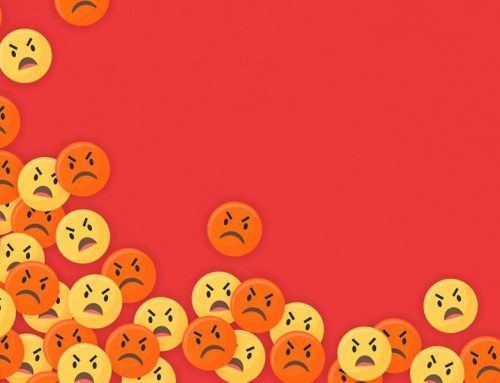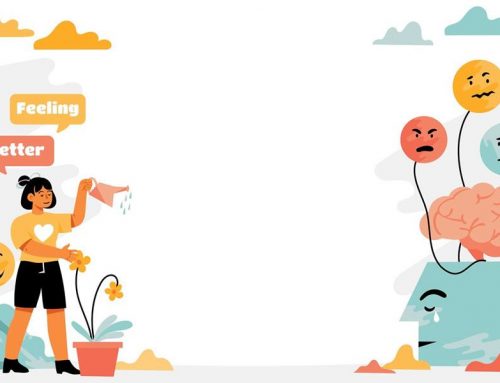Auditory Processing Disorder (APD) and Attention Deficit Hyperactivity Disorder (ADHD) are two specific clinical conditions with different diagnostic criteria. Both of these disorders share common characteristics such as distractibility and inattentiveness.
Auditory Processing Disorder (APD), also known as central auditory processing disorder, isn’t hearing loss or a learning disorder. It means your brain doesn’t “hear” sounds in the usual way. It’s not a problem with understanding meaning. Children with an auditory processing disorder (APD) will pass a basic hearing test but still have difficulty processing sound. Children with APD often stop paying attention because they are having trouble understanding or they are distracted by background noise. Children with APD also experience listening fatigue from continuous efforts to process speech and keep up with a class discussion. This can be overwhelming and cause the child to “zone out” and shut down.
Attention Deficit Hyperactivity Disorder (ADHD) is a medical condition that results in differences in brain activity that affects the individual’s ability to pay attention and control impulsive behaviors. It is one of the most common neurodevelopmental disorders of childhood. It is usually first diagnosed in childhood and often lasts into adulthood. ADHD is a developmental impairment of the brain’s executive functions. Individuals with ADHD may be poor listeners and have trouble remembering spoken information, but it is the attention deficit that is impeding their ability to use the auditory information coming in, not inaccurate processing of sound in the brain.
ADHD may also coexist with an auditory processing disorder.
Studies suggest that 50% of children diagnosed with ADHD may also have APD. While ADHD is typically diagnosed by physicians or psychologists, APD is only diagnosed by audiologists through a battery of tests assessing the central auditory nervous system.
It is common for children to be misdiagnosed with ADHD when they actually have APD
Because many symptoms of Auditory Processing Disorder overlap with ADHD, and most pediatricians are more familiar with ADHD, it is easy for APD to be overlooked. Many people feel that ADHD is too quickly diagnosed for children who are difficult to handle in the classroom and that children often end up on unnecessary medication.
ADHD medication will not improve auditory processing.
Signs of ADP
- For some children, reading aloud can be a frustrating experience. While many kids enjoy this activity, it can be overwhelming for those who struggle to process spoken words and sounds. Unfortunately, this can lead to a loss of interest in the story and a decreased level of comprehension.
- As children with auditory processing disorder (ADP) grow older and reach junior high and high school, many of them tend to lose interest in reading. While most kids their age can find a book or series that piques their interest, that’s not always the case with ADP kids.
- Speech delays. When it’s hard to distinguish and make sense of sounds, it’s hard to speak correctly. For example a child might turn “throw” into “frow” and so on.
- Struggles with letters, spelling and words. Much of learning literacy requires the ability to process sounds. Without the ability to distinguish between “t” and “d” or other similar sounding letters, learning is going to become difficult quickly. This is often confused with dyslexia.
- Children may have difficulty paying attention during class or story time. This can cause them to feel restless and fidgety.
- Trouble recalling sounds in music or learning an instrument. The difficulty with processing extends past the inability to understand words and creates problems with sounds in general.
- Bothered by noises like the vacuum or even small sounds like tapping pencils. This comes from a hypersensitivity to sound and the inability to handle background noises.
- Hears but doesn’t listen. For example, your child tells you they’re going out to play. You say “no” and they say “ok, I’ll see you later” and walk out the door anyway.
- Often, they have difficulty processing what they hear. You can tell they’re trying to understand, but it’s just not quite sinking in..
- Understands written language better than spoken language.
- Struggles to have normal conversations with friends and classmates.
Comparing Symptoms
If a child has several symptoms in both columns, it is likely that the child is at risk for having both conditions.
APD
- Difficulty keeping up with conversations
- Easily distracted by background noise and attuned to subtle sounds that most people tend to overlook
- Can concentrate and remain attentive in quiet surroundings
- Requires additional processing time for auditory information and may experience significant delays before responding
-
Often requests that individuals repeat themselves, even when actively listening
-
It’s possible to mishear spoken questions or experience difficulty responding when asked a question verbally
-
Struggling to retain heard information
-
Often responds with “huh?” or “what?”
-
May experience fatigue when listening for extended periods
-
Individuals may experience difficulties with phonemic awareness and may struggle to differentiate between similar sounds
-
Challenges with tasks requiring listening comprehension
-
Some individuals may choose to read independently rather than listen to audiobooks
-
Individuals who are sensitive to loud noises may become upset or feel the need to cover their ears in noisy environments.
-
There’s a chance that there was a delay in speech development and some persistent pronunciation difficulties.
-
May struggle with interpreting tone of voice and detecting sarcasm.
ADHD
- Difficulty staying focused in conversations, leading to appearances of distraction or preoccupation
- Easily distracted by sights, sounds, and activity around them
- Typically exhibit inattention, distractibility, and hyperactivity in any environment
- Sometimes interrupts others by answering before the question is fully asked
- May hyperfocus on an activity they really enjoy and not respond when spoken to
- Has a tendency to interrupt others
- Difficulty remembering daily activities (such as forgetting to bring lunch or complete homework)
- Difficulty staying seated: fidgeting and squirming
- Restlessness when listening
- Impulsive and acts without thinking of the consequences
- Struggles with organization, prioritizing, and planning
- Often daydreaming
- May have a hot temper and be prone to meltdown
- Tendency to make careless mistakes
- May talk excessively
Comparison of primary concerns
In individuals with APD, primary complaints involve poor listening skills in background noise, difficulty following oral instructions and poor listening skills. Whereas, for individuals with ADHD, the biggest concerns or complaints by parents and teachers are of inattentive and/or hyperactivity.
ADHD |
APD |
| 1. Inattentive | 1. Difficulty hearing in background noise |
| 2. Distracted | 2. Difficulty following oral instructions |
| 3. Hyperactive | 3. Poor listening skills |
| 4. Fidgety/restless | 4. Academic difficulties |
| 5. Hasty/impulsive | 5. Poor auditory association skills |
| 6. Interrupts/Intrudes | 6. Distracted |
| 7. Inattentive |



